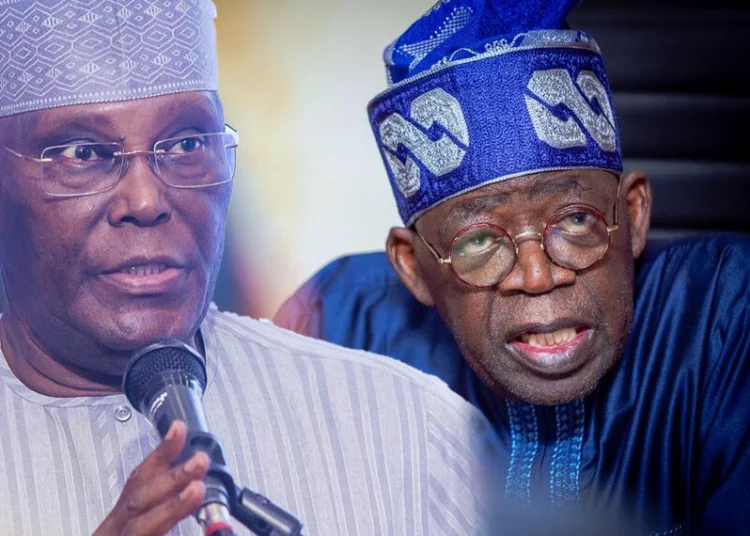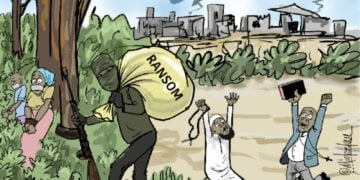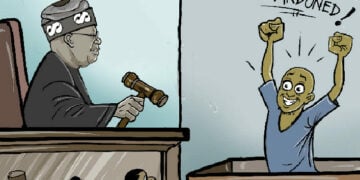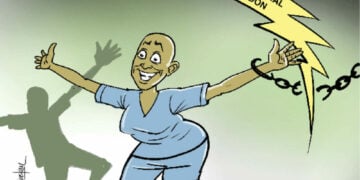It is just over 2-months to the presidential elections in February next year, already electioneering activities has reached fever pitch. Across the country political parties have began soliciting the thumb print of the electorates while party slogans are fast becoming popular lexicons. Political commentators have been appearing on different fora dissecting the political process. One of the issues that has featured consistently on the chopping table has been the manifestoes of presidential candidates.
In October, the presidential candidate of the All Progressives Congress (APC), Bola Tinubu released an 80-page action plan in an elaborate ceremony in the nation’s capital. The 80-page action plan titled; “Renewed Hope 2023 – Action Plan for a Better Nigeria” focuses on national security, economy, agriculture, power, oil and gas, transportation and education. Other areas include; healthcare, digital economy, women empowerment, judicial reform, federalism/decentralization of power and foreign policy. In his speech, the APC presidential candidate said that his manifesto is a promise that can be banked on.
In the same month, Alhaji Atiku Abubakar, presidential candidate of the People’s Democratic Party (PDP) also unveiled his manifesto. He promised to accelerate the development of Micro, Small and Medium Enterprises (MSMEs) and the business ecosystem in Nigeria if he is elected president in 2023 presidential election. Other key contents of the manifesto includes raising GDP per capita, creating three million new jobs, lifting poor Nigerians out of poverty yearly, increasing the inflow of Foreign Direct Investments (FDIs) amongst others.
While other presidential candidates have also released their manifestoes, for obvious reasons, the manifestoes of the presidential candidates of the APC and PDP has been generating commendation and scrutiny. A critical perusal of both manifestos reveals significant differences on how both candidates propose to tackle the challenges facing our nation and how to move the country forward.
Insecurity over the years has been an impediment to the country’s developmental process. It is no wonder it’s a primary fixture in many of the presidential candidate’s manifestoes. For both the APC and PDP candidates, they acknowledge the enormity of the current security challenges and have proffered solutions. The APC proposes to tackle security from the agencies, their morale, equipment and services. The PDP candidate harps on the provision of visionary leadership, good governance and political inclusiveness.
Now, while both approaches are commendable, the APC’s candidate proposal is what the country needs. The security issues we are currently facing ranges from kidnapping, banditry, oil theft, proliferation of small and light weapons as well as porous borders. The PDPs solution may not be as practical as it seems. This is because security is not just the product of political inclusiveness. Some of the people contributing to the insecurity challenge have their men in prominent government positions.
On the economy, both candidates concurred on the debilitating state of the economy. While the APC presidential candidate proposes massive industrialization driven by modern technology to drive the economy, the PDP candidate says the economy will be private sector driven and anchored on technologically driven agricultural sector. No doubt in many developed countries around the world, industrialization has been instrumental in placing them on the pedestal of first world countries.
Industrialization has moved many economies from agrarian production to mass-produced, technologically-advanced goods and services. Admittedly, industrialization and technology is the key to building Nigeria’s economy. Along with providing employment for the teeming youth population, Nigeria can always source raw materials and make excellent finished products that will improve the livelihoods of the citizenry.
For the PDP’s private driven economic proposal, distrust will be a major hurdle for the candidate. This is because in the past, the PDP government has been accused of selling National assets at under value to their associates. Privatization under the past PDP regime hasn’t translated into positive reviews for the country.
For instance, the privatization of the power sector didn’t do much to enhance the sector. Nigerians are still suffering from epileptic power supply with many insisting that what was obtainable before privatization is better than what is currently accessible. Thus certain key national infrastructure must continue to be managed efficiently by government.
Over the years, a contentious issue that has generated a lot of agitation has been the revenue allocation sharing formula. Under the current revenue sharing formula, the Federal Government takes 52.68 percent, the state’s 26.72 percent and the local governments, 20.60 percent with 13 percent derivation revenue going to the oil producing states.
Earlier in the year, the Revenue Mobilization, Allocation and Fiscal Commission (RMAFC) proposed a sharing formula of 45.17 per cent for the Federal Government, 29.79 per cent for state governments and 21.04 per cent for the local governments. While the recommendation is an improvement on the current formula, many still do not believe it is good enough. They insist that the Federal Government should shed further load, and receive much less.
Across the country today, the consensus is that there is urgent need to devolve more financial resources from the centre to the 36 states and 774 local governments. This is towards ensuring that these tiers of government can carry out their functions and ultimately improve the economic growth and development in the country. In recognition of this, the APC proposes to review the current formula to give states more resources for development.
A quick search of the PDP manifesto shows nothing on this. Rather the party’s presidential aspirant wants to transfer all Federal Government institutions (i.e. universities, polytechnics, and secondary schools) to state governments but does not have a policy to increase the income of the states to meet the increased financial burden. Certainly, these institutions would be starved of funds and majority of the students who cannot meet up the exorbitant tuition fees of private schools will be the ones at the losing end.
Oil subsidy has been another contentious issue that has generated a lot of hullaballoo. Well thanks to dwindling revenues, the government has said it can no longer sustain the policy. While almost all the political parties are saying NO to oil subsidies, the APC seems to be the only party that has an articulated plan written in black and white in its manifesto on how it intends to make use of the monies meant for subsidy.
A Tinubu-led government intends to use the funds to build infrastructure, agriculture and welfare. It will be channeled towards road construction, public transportation subsidies, education and healthcare funding. Many of the other parties particularly the PDP have only made generalized comments on subsidy removal. They seemingly do not have a clear-cut plan on how to channel resources from subsidy removal to the sector of the economy that will have the greatest impact on the citizens.
On the issue of the budget, the current Buhari-led administration has been able to ensure that the budgetary circle starts from January and ends in December. A Tinubu-led Federal Government wants to go further by reviewing the budget in line with international best practices. For instance, in the European Union, the budgets are projected on government spending rather than projected incomes from the export of crude oil. This allows the government to control inflation and fiscal discipline. The PDP on its part have nothing on this. Perhaps they intend to retain the status-quo which has brought more harm than good to the country.
Health, they say, is wealth and both candidates have similar proposals particularly the improvement of Primary healthcare services. However while the APC plans to upscale healthcare centers, improve secondary healthcare services and establish at least one world class tertiary hospital in each of the geo-political zones with the aim of attracting medical tourism to Nigeria, the PDP aims to encourage the private sector to establish world class hospitals in Lagos and Abuja. How accessible and affordable will these hospitals be for the common man? Your guess is as good as anyones.
The campaigns That will produce the next president of Nigeria in 2023 should ideally be focused on issues. And while each party has a solid and credible policy framework, an interrogation of the manifestos proposed should help navigate the electorate on the preferred path to take. Thus, in comparing the manifestos of The two leading parties, PDP and APC, that of the latter, “Renewed Hope 2023 – Action Plan for a Better Nigeria” distinguishes itself and stand head and shoulders above the competition.





